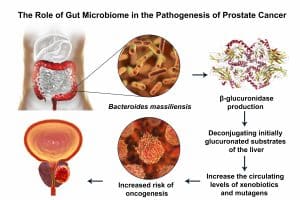Both Obesity and Lack of Physical Activity are Significant Contributors to the Development of Various Types of Cancer
Physical activity plays a significant role in preventing weight gain and reducing the risk of obesity-related cancers. Obesity is a well-established risk factor for several types of cancer, including breast, colorectal, endometrial, kidney, pancreatic, and esophageal cancers. Engaging in regular physical activity has multiple mechanisms through which it contributes to weight management and helps lower the risk of obesity-related cancers:
 Energy Expenditure: Physical activity increases the number of calories your body burns, helping to create a calorie deficit when combined with a balanced diet. This is crucial for weight maintenance or weight loss, as excess body weight is closely linked to an increased risk of various cancers.
Energy Expenditure: Physical activity increases the number of calories your body burns, helping to create a calorie deficit when combined with a balanced diet. This is crucial for weight maintenance or weight loss, as excess body weight is closely linked to an increased risk of various cancers.
Metabolic Health: Regular physical activity helps improve insulin sensitivity and glucose metabolism. Insulin resistance and high levels of insulin in the blood have been associated with an increased risk of certain cancers, such as colorectal and endometrial cancers.
Hormone Regulation: Physical activity can help regulate hormones like estrogen and testosterone. High levels of estrogen are associated with an increased risk of breast and endometrial cancers, and physical activity can help reduce estrogen levels in the body.
Inflammation Reduction: Chronic inflammation is linked to the development of cancer. Regular exercise has been shown to reduce levels of inflammation markers in the body, thereby potentially reducing the risk of inflammation-related cancers.

Improved Immune Function: Regular physical activity has been shown to enhance immune function. A strong immune system is essential for identifying and destroying potentially cancerous cells before they can develop into tumors.
Enhanced DNA Repair: Physical activity may promote DNA repair mechanisms in the body, reducing the likelihood of DNA damage that could lead to cancer development.
To maximize the cancer-preventive benefits of physical activity:
Engage in Regular Exercise: Aim for at least 150 minutes of moderate-intensity aerobic activity or 75 minutes of vigorous-intensity aerobic activity per week, along with muscle-strengthening activities on two or more days per week.
Lifestyle Changes: Combine regular physical activity with a healthy diet rich in fruits, vegetables, whole grains, lean proteins, and healthy fats to further promote weight management and reduce cancer risk.
Avoid Sedentary Behavior: Limit prolonged periods of sitting and aim to incorporate more movement throughout your day.
Consult a Healthcare Professional: Before making significant changes to your physical activity routine, especially if you have existing health conditions, it’s important to consult with a healthcare professional.
In conclusion, regular physical activity is a crucial component of a healthy lifestyle that can help prevent weight gain, manage obesity, and reduce the risk of obesity-related cancers. It complements other healthy habits and can significantly contribute to overall well-being and cancer prevention.
